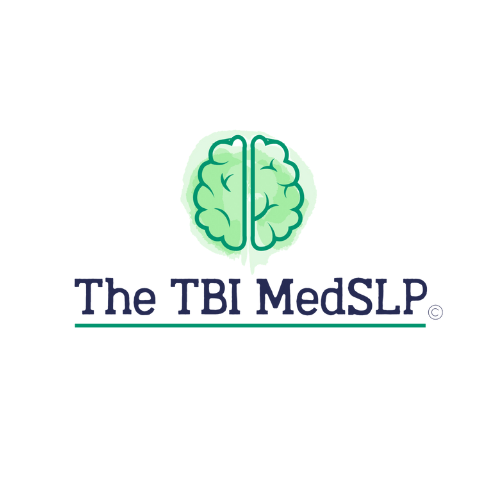Cracking the Code: Concussion Symptoms and Proven Prevention Strategies
An estimated 1.6-3.8 million sports-and recreation-related concussions occur in the United States each year. Every year, millions of people around the world suffer from concussions, also known as mild traumatic brain injuries (MTBIs). Concussions happen because of different reasons. These include sports accidents, falls, or car crashes. Head injuries labeled as 'mild,' can have a mild-severe impact and symptoms on individuals.
In this blog post, I will discuss concussions to help understand the extent of their impact on the human brain and how they impact those affected. I will explain the common causes, symptoms, and challenges faced by concussion survivors. I will also discuss the physical, cognitive, and emotional symptoms that concussions can bring on. I will talk about why it's crucial to immediately seek medical help and the treatment choices for post-concussive symptoms.
Common Causes of Concussions
Concussions can happen from various incidents, including sports-related accidents, falls, and motor vehicle collisions. While the severity of these injuries may vary, even mild impacts to the head can lead to long-lasting effects on brain function. Understanding common causes of MTBIs helps raise awareness and promote preventive measures. Education and awareness can reduce the incidence of these injuries.
One of the leading causes of a concussion is sports accidents. High-impact sports such as football, hockey, and soccer are particularly susceptible to head injuries. Falls, especially among older adults, are another common cause of mild traumatic brain injuries. Falls lead to approximately half of all TBIs. Motor vehicle accidents are a significant contributor to concussions. The sudden impact can shake the brain inside the skull. This causes the brain to rapidly move from the front of the skull to the back of the skull, or vice versa, leading to injury.
It is important to note that while the causes of concussions may be diverse, the impairments can be similar. Understanding the causes of concussions helps people take precautions and reduce their risk of getting one.
Signs and symptoms of Concussions
Recognizing the signs and symptoms of a concussion is crucial for early intervention. Early intervention allows for effective management of the condition. Some immediate symptoms may be evident, such as loss of consciousness or disorientation. But, some effects may become present hours or even days after the injury.
Physical symptoms of concussions can include:
Headaches
Dizziness
Nausea
Sensitivity to light or noise
Cognitive symptoms may manifest as:
Memory problems
Attention problems, difficulty concentrating
Slowed thinking and processing time
Difficulty solving complex daily problems
Difficulty with word finding
Emotional and Behavioral changes such as
Irritability
Anxiety
Depression
It is important to understand that the symptoms and their severity can vary from person to person. While some individuals may experience only a few mild symptoms, others may face more significant challenges. The severity of the symptoms could warrant various treatment options
Concussion Diagnosis
Prompt and accurate diagnosis of a concussion is essential for effective treatment and management. Healthcare professionals typically assess the severity of the injury using various tools and techniques, including physical examinations, cognitive tests, and imaging studies.
These tools may include:
Neurological Testing: Your doctor may assess your hearing, vision, reflexes, strength, and balance
Cognitive Testing: This may be done by your doctor or a neuropsychologist
Imaging Tests: A CT or MRI scan may be done if a patient has severe headaches or seizures. Children may have a CT scan performed if they meet certain criteria, radiation exposure is important to avoid if possible with children.
Observation: This may be observation overnight at a hospital or by a caregiver at home to monitor your symptoms
Concussion Treatment
Treatment for concussion focuses on managing symptoms, promoting recovery, and improving quality of life. Rest and avoiding activities that exacerbate symptoms are often recommended during the initial stages of recovery. Speech therapy, physical therapy, and occupational therapy can help improve impairments that are often associated with concussions.
In some cases, medication may be prescribed to manage specific symptoms, such as headaches or sleep disturbances. Additionally, mental health support, including counseling and therapy, may be beneficial for individuals experiencing emotional challenges as a result of their concussion. Always seek a medical doctor’s opinion for treatment options!
Concussions in Sports
Sports-related concussions have gained significant attention in recent years. This has raised concerns about the safety of athletes and the long-term consequences of these injuries. It's important to understand the dangers of sports-related concussions and put in place measures to prevent them.
Contact sports, such as football, hockey, and soccer have a higher risk of concussion due to impact. Teaching athletes, coaches, and parents about concussions and how to report head injuries is crucial for proper care.
Prevention strategies in sports include implementing rule changes to decrease high-impact collisions, encouraging fair play, and promoting proper training techniques. Also, better helmets and protective gear help lower concussion risks.
Preventing Concussions
Taking safety measures and precautions can significantly reduce the risk of sustaining a brain injury. Implementing simple strategies can help protect individuals and minimize potential accidents.
In sports, proper equipment, such as helmets and protective gear, should always be worn. Following rules and regulations of the sport and avoiding high-risk actions can help prevent unnecessary injuries.
In everyday life ensuring a safe environment can reduce the risk of falls that can lead to concussions. These include:
Removing hazards (throw rugs, cords in walkways)
Using handrails on stairs, and
Installing proper lighting
Education and awareness campaigns play a vital role in preventing a concussion. Individuals can make more informed decisions and take necessary precautions by providing information on:
Risks and consequences of head injuries
Promoting safety measures
Spreading awareness about traumatic brain injuries
To prevent sports injuries, you can use strategies to help lower concussion risks.
These include:
Changing rules to reduce big collisions
Promoting fair play
Teaching proper training methods
Using better helmets and protective gear




